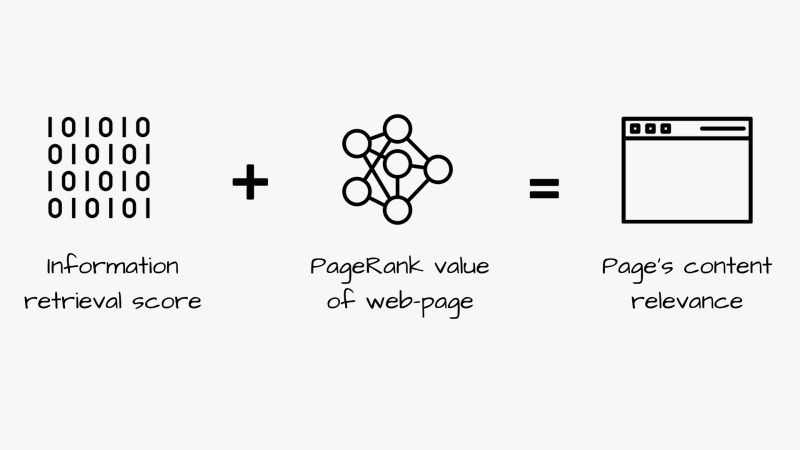
Often non-SEO folks define content and links together as the most fundamental combination to drive organic search growth.
And that's pretty much true.
Of course, every bit of technical SEO matters as well, in relevant scenarios, however at the basics, anything that truly moves the needle can be put into either the content or links bucket.
What's interesting is how closely this concept matches Google's algorithm.
In the simplest form, your website rankings are a result of the relevance proximity Google could find on your page and the search query.
Breaking it down further, a page's relevance can be grilled down to two main algorithmic anchors:
👉 1. Information Retrieval score: A score Google provides to pages based on a set of factors.
👉 2. PageRank value: A value Google provides to pages based on the number/quality of links pointing towards or connected to the page.
How the IR score is calculated? No one knows the actual calculation process but broadly speaking its a result of Google knowing which pages the searcher actually wanted to see against their search query.
And the way Google would assess this is based on the following main factors:
🟢 Relevance to the search query: most determined from content on the page
🟢 Size, color, and position of the terms that show signs of relevancy to the search query
🟢 The relevancy between the search query and the context of the links pointed to the pages
PageRank on the other hand (mostly referred to as 'LinkJuice' in common SEO language) is calculated based on the quantity and quality of links coming to the page.
Most of us already know this but PageRank is more complex than we think.
⚫ There is topic sensitive PageRank
⚫ There is a user-sensitive PageRank
Both topic and user-sensitive PageRank has their own algorithm patents that break down how these two function and differ in assigning value to links.
So what does all of this means?
If you have a fine understanding of how these two elements of Google’s algorithm works, by:
🟢 Building a solid content production machine.
🟢 Running a smooth link acquisition engine.
... then that’s 90% of your SEO done right there and you can ignore almost all other buzzwords.
Other articles:
























 2,196
2,196



















